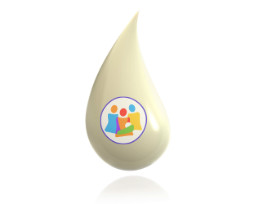Over-The-Counter Medications During Lactation
Updated 01/25
PDF Version
Pain Medications
Avoid products with aspirin
Preferred medications are:
- Acetaminophen, no more than 3000mg/24 hours
- Ibuprofen, no more than 800mg every 6 hours
- Naproxen is less ideal than ibuprofen because naproxen has a longer 1/2-life
Cold Medications
Avoid all oral and intranasal products with decongestants such as pseudoephedrine and phenylephrine, because these can cause a significant decrease in milk production.
Preferred medications are:
- Guaifenesin for nasal congestion and cough
- Dextromethorphan for a cough
- Nasal saline preparations
Allergy Medications
Preferred medications are:
- Non-sedating antihistamines such as loratadine, fexofenadine or cetirizine for sneezing and itchy eyes/nose, itching and hives
- Stronger antihistamines such as diphenhydramine and chlorpheniramine can cause irritability in the baby and might reduce the milk production in high doses or regular use
- Nasal cromolyn sodium
- Nasal steroids
- Topical steroid creams/ointments such as hydrocortisone
Heartburn
Preferred medications are:
- Famotidine
- Omeprazole, lansoprazole
- Antacids such as calcium carbonate, magnesium hydroxide, aluminum hydroxide
Constipation
Preferred medications are:
- Docusate Sodium stool softeners
- Magnesium hydroxide
- Polyethylene glycol
- Bisacodyl
- Fiber supplements such as psyllium, calcium polycarbophil, methylcellulose fiber, wheat dextrin
- Magnesium citrate
- Senna
Diarrhea
Preferred medications are:
- Loperamide
- Bismus subsalicylate, when used occasionally. Regular use can increase salicylate levels in the infant and cause metabolic acidosis.
Motion Sickness
Preferred medications:
- Meclizine. Watch for infant sedation. It may reduce milk production with high doses or regular use.
- Dimenhydrinate (Dramamine). It may reduce milk production with high doses or regular use.


